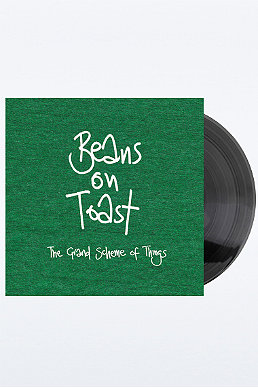
One of the most requested songs in our house of late, largely thanks to the recent Jason Segal "Muppets" movie is "We Built This City" by Starship.
Having heard it closely again recently, for the 50th time or so, I was reminded that recently this song was voted as one of the worst songs of all time. In fact, it has been voted as such many times, In 2004 it made international news when Blender magazine declared the song as the worst song of all time. It was then voted as the worst song of all time in a Rolling Stone readers poll.
But seriously, why do people hate this song so much? My kids are blissfully indifferent to any criticism of it, but I've found the debate surrounding the song to be fascinating.
The performing artists responsible for the song are Starship. The San Francisco band has its origins as Jefferson Airplane, a hippie band that found fame in the Summer of Love in 1967 and played large gigs such as Woodstock and the Rolling Stones' ill-fated Altamont Festival. They changed their name in the mid 1970s to Jefferson Starship. Once Paul Kantner, who had been with the band since the very beginning, left from the band he sued the band to prevent them using the Jefferson Starship name, so they reverted to the name Starship instead.
With vocalist Grace Slick as the only remaining member, they relaunched their career with a slick corporate rock album "Knee Deep In The Hoopla" and the lead single "We Built This City (On Rock and Roll)". All the songs on the album were outsourced to professional songwriters and the production was polished within an inch of its life. Partially written by Elton John's long time collaborator Bernie Taupin, it was a song allegedly describing 1970s L.A., if Bernie is to be believed...
What the song is in the writers hands is totally different in the hands of Starship. Here you have a band who started as staunchly anti-corporate in the 1960s, is now grotesquely being corporate. They sing out avoiding "corporation games", corporations taking over the music industry and forcing bands out of the inner city. They appear to be singing out against the very thing they have become, complete with a soulless commercial pop soundtrack.
The backlash may have been delayed but it was harsh. Blender magazine in their original 2004 story rightly (in my opinion) called the band out for being hypocrites; for chastising those who take the corporate dollar all the while taking the corporate dollar themselves. Singer Mickey Thomas doesn't see it that way: " "I'm really proud of that song. For me it was a response to lost innocence. It was about rock music growing up and losing its idealism" he says.
Blender apparently copped heaps of flak over it and ultmately retracted their criticism, with the magazine folding for good in 2009. Singer Grace Slick left the band in 1987, citing her age as the reason she wanted to retire ("old people don't belong on stage") while Mickey Thomas keeps the band alive and touring to moderate sized audiences in casinos around the US.
As a piece of nostalgia it's a bit of fun. I loved the song when it came out and it is no surprise the next generation of kids like it either, as it was designed to be uber-catchy.






